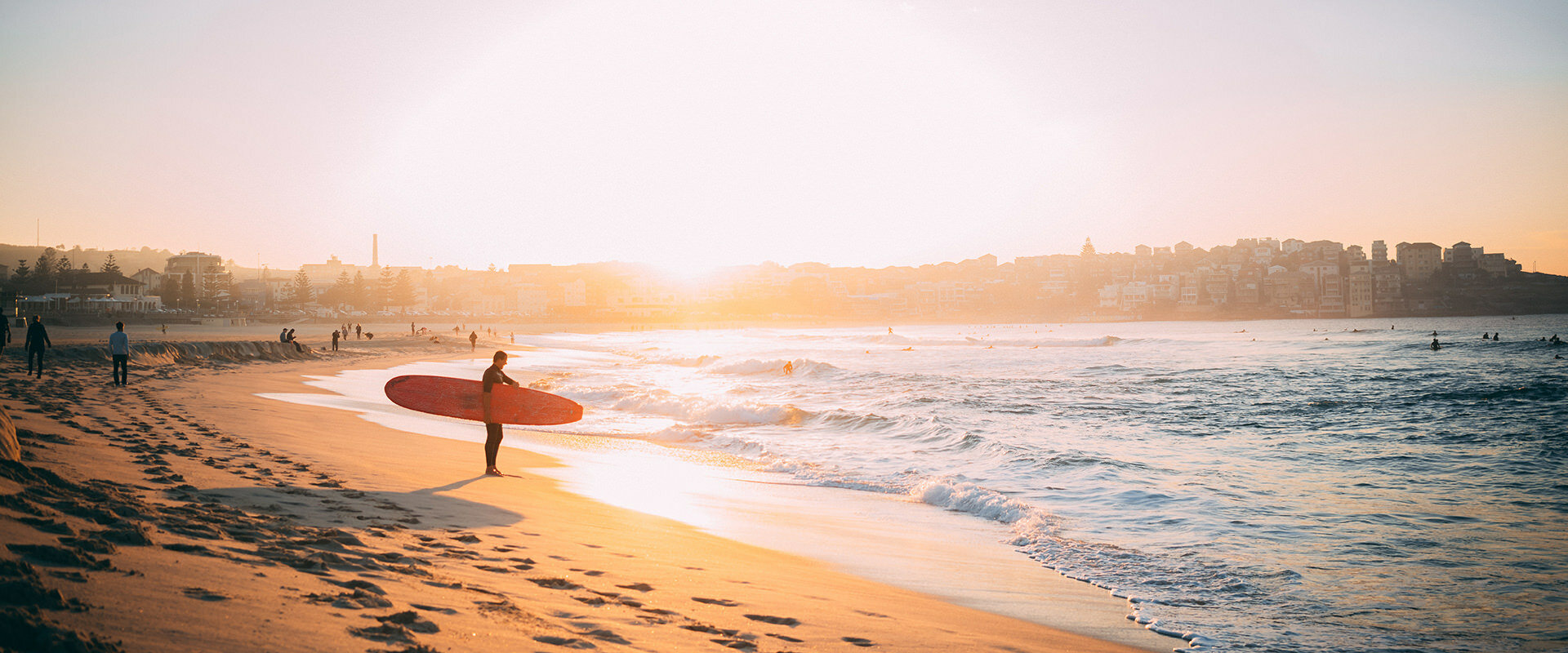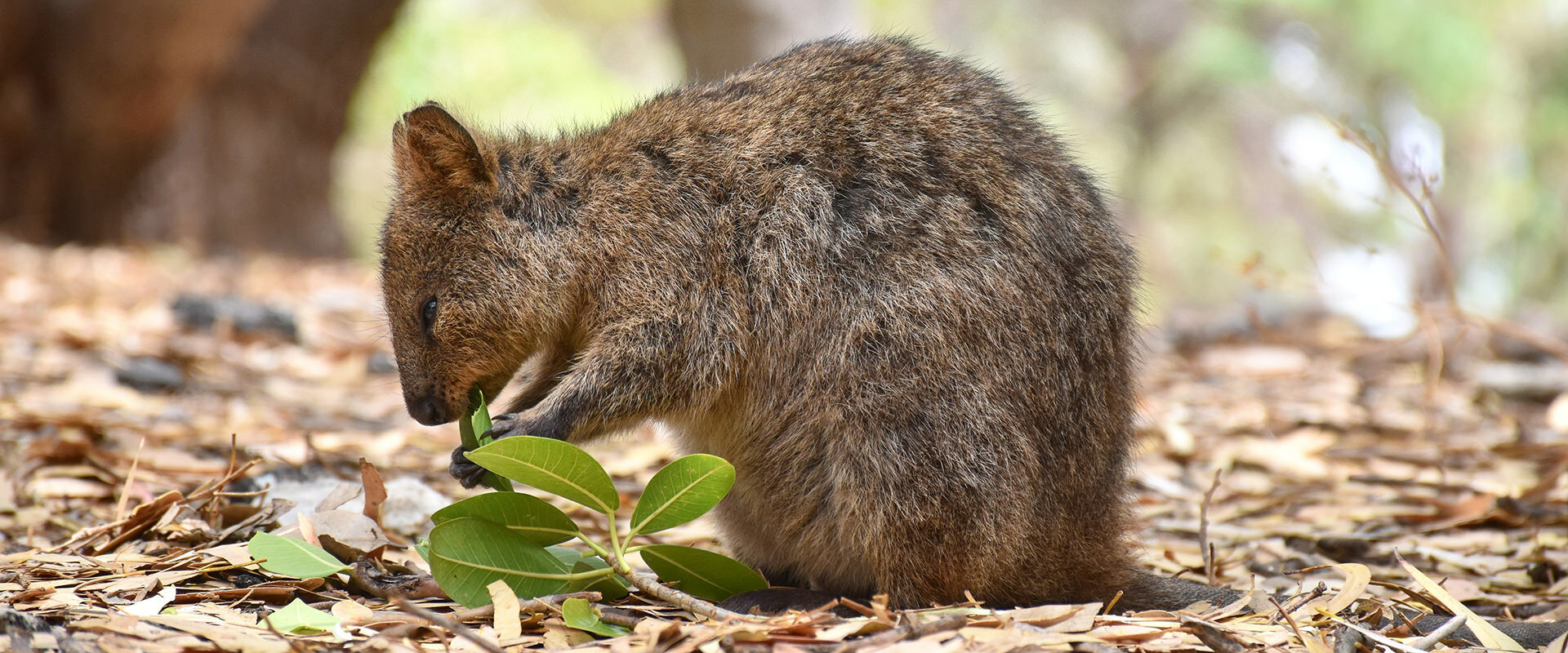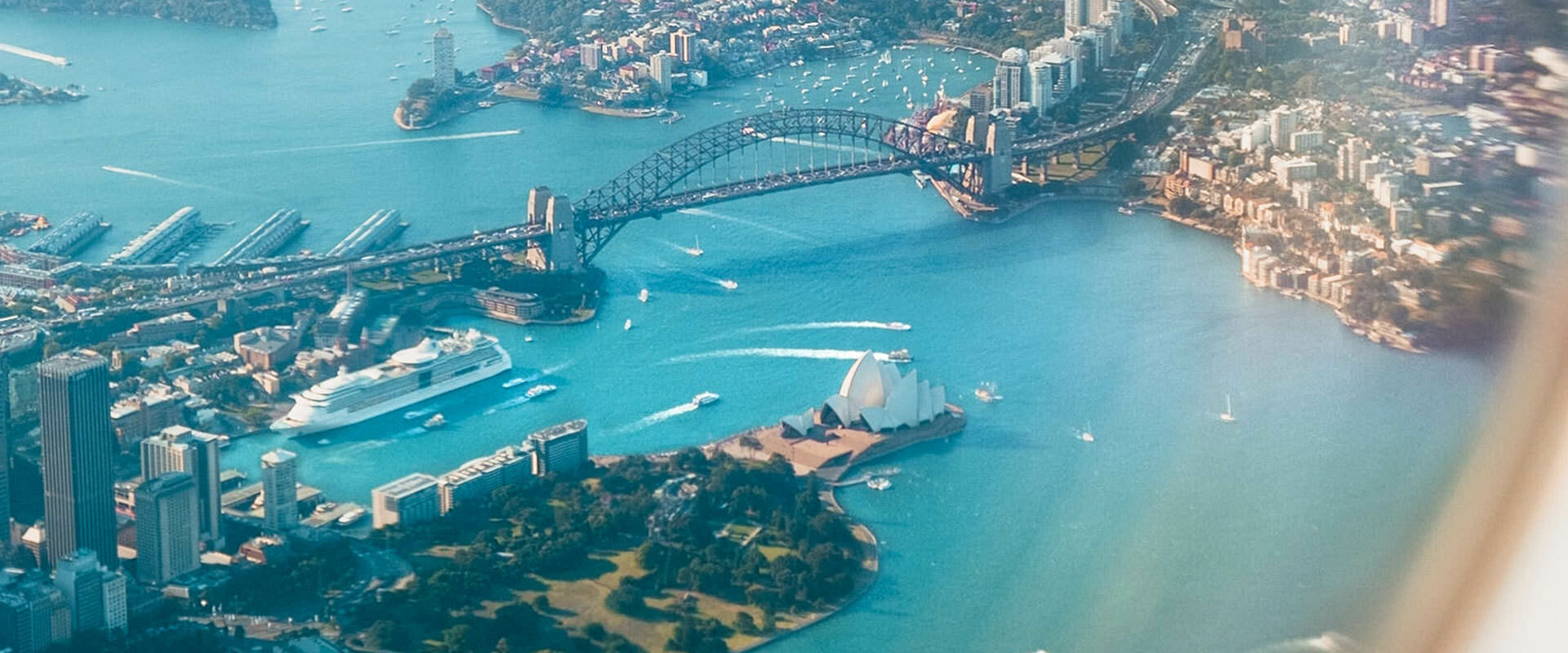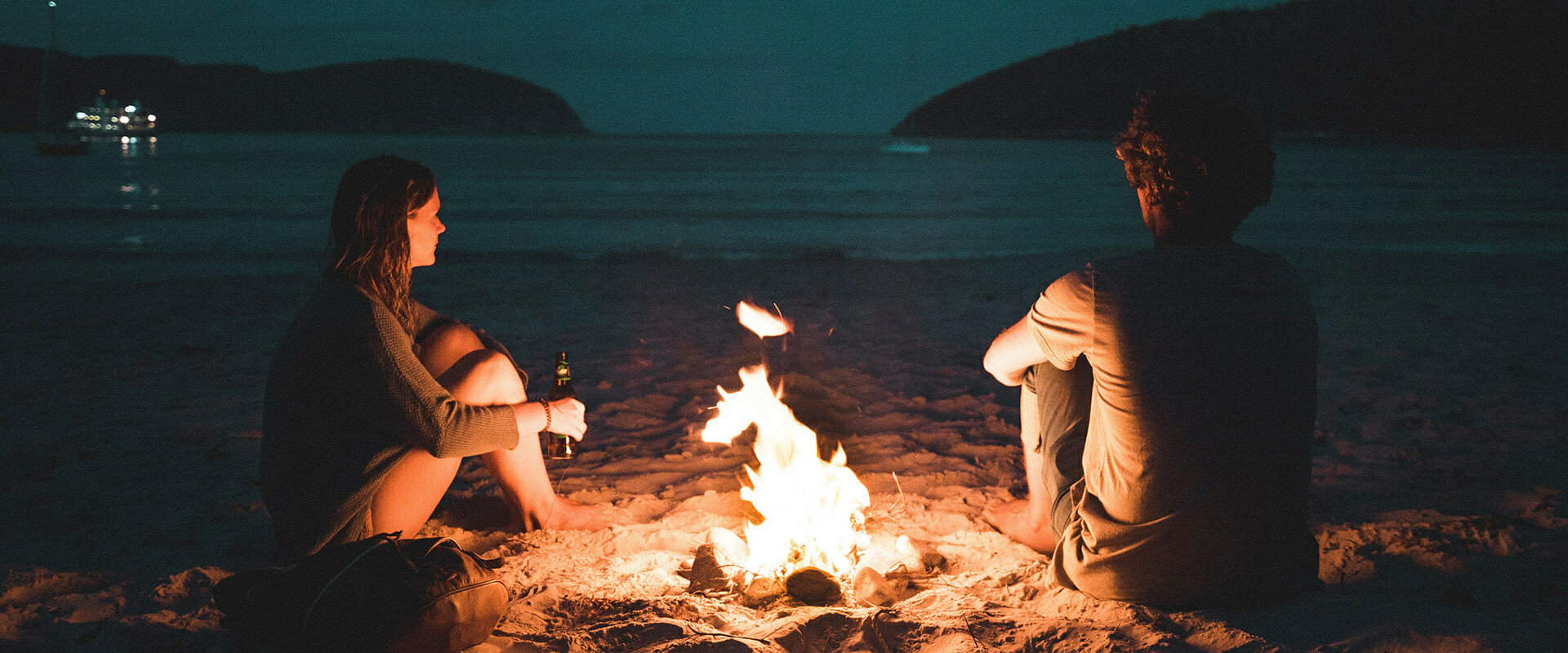Will I ever return to Australia?
Back when you first started travelling, did you experience a destination that really spoke to you? Somewhere you connected with so deeply that you knew you’d return, ideally for an extended trip? For me, that place is Australia. But my initial journey wasn’t all sunshine and surfing—for a while, I wanted nothing more than to leave.
At 18 years old, I found myself suddenly alone on the other side of the world. I had flown to Australia to travel with my boyfriend, his brother and his best friend. We had explored Sydney, Melbourne and Darwin before flying to Bali, where he dumped me.
I never intended to travel solo. This was supposed to be a whirlwind romance, not a self-love journey to find myself. Nothing was going as planned. I debated flying home but decided to continue on my own. Little did I know this breakup was the best thing that could’ve happened to me.

I flew from Kuta to Perth because it was the cheapest flight back to Australia. Stepping off the airplane, I suddenly realized I had no one to follow—no one to find the hostel or to take care of me—except myself. Walking to Cottesloe Beach, a fellow backpacker spotted me hauling my excessive luggage and struck up a conversation. “I’m Martin, from Belgium. Where are you from?”
“Canada,” I replied. Martin invited me to join a group of other backpackers for a friendly game of beach volleyball. I accepted, feeling slightly less alone.
When I joined the gaggle of nationalities, I noticed most of them were travelling solo. I’d stayed at hostels before, but I’d barely met anyone when I was tethered to my boyfriend. Now, I was drinking beers with a guy from Finland, two girls from the States and someone from Israel as the brilliant blue sky faded to an orange glow. After a few drinks, we were already making plans to visit each other in our respective home countries. We comprised a cluster of cultures with a common goal: to see the world.
Despite my initial trepidations and heartbreak, I fell in love again—this time, with Australia. At the Bay of Fires in Tasmania, I clambered over grey rocks sprinkled with ember-coloured lichens and swam in a freezing, crystalline, turquoise sea. I watched a shark circle beneath me while scuba diving the Great Barrier Reef. I felt the unfiltered sun crisp my shoulders while I cycled around Rottnest Island, looking for adorable quokkas, wallabies that look like tiny kangaroos.
I started to relish waking up in crowded hostel dorm rooms, making new friends every few days and constantly trying new things. Life was as simple as: where to next? I finally found somewhere I belonged in the backpacker lifestyle.

So many of the backpackers I met were on long-term trips and working holidays. They praised the high minimum wage and easygoing, beach-centered lifestyle in Oz. I wanted to experience that one day, too.
It wasn’t all easy and fun—there were genuine moments of loneliness, fear and confusion. At an all-day punk music festival, I danced in a sea of strangers, feeling embarrassed to be alone in the clique-filled crowd. While volunteering at a farm in the Atherton Tablelands, I ended up in the middle of a rowdy bar fight, terrified for my friends who were suddenly bruised and bleeding. On a boat tour of the Whitsunday Islands, pounding rain obscured the white sand in murky water and I retched overboard, seasick.
But I learned from facing these difficult situations and the discomfort that came with them. After all, we grow because of mishaps and misadventures, not when everything is perfect.
After five months, I flew home to Grande Prairie, Alberta, to start college. I promised myself I’d return for an extended trip on a working holiday visa soon.
Ten years passed.
I was still travelling, always travelling, keeping Australia in the back of my mind like a sacred sliver of hope.
Of course, it wasn’t as quick as that. After my first year of college, I secured a two-year work visa for the UK. I waitressed at a hotel in the northernmost reaches of Scotland, spending my days off wandering among crumbling castles and tracing my lineage next to the cold North Sea. I backpacked through Europe and worked at a ski resort in the French Alps where a sudden snowboarding injury forced me to cut my trip short. I flew home to begin a long, arduous journey of recovery.
When I turned 21, I enrolled in college in Kelowna, a beautiful lakeside city with rolling vineyards in British Columbia’s Okanagan Valley. I lived with several roommates, at one point not even knowing how many of us shared a house. It reminded me of staying in hostels with cluttered kitchens and lively common spaces. I spent my summer breaks in India and Berlin before studying abroad in South Korea while freelance writing for travel magazines. I was still travelling, always travelling, keeping Australia in the back of my mind like a sacred sliver of hope.
At 25, I moved to Montreal to start my master’s. While living in a quaint red-brick apartment and working as a travel writer, I embarked on press trips to places like Ecuador and Mexico, even taking a private jet to Cuba. It was a far cry from my hostelling days. I still thought about the auburn sunsets in Perth, crimson-coated rocks in Tasmania and unbearable heat waves in Cairns. I put off returning, saying “next year,” again and again.

Why didn’t I just go? I could come up with a ton of excuses—I was allured by new places, focused on my education and dubious that my trip-ending injury could withstand long-term travel—but there was something else. Maybe I was worried you can’t ever really go back. Everything would be different, from the people to the places and even myself. Maybe I was afraid Australia wouldn’t feel like home anymore. Maybe I liked having a future trip to constantly plan for. Maybe I felt too old or too tainted to travel impulsively like I did before.
Eventually, I was offered a full-time position as a social media manager, writer and editor in Vancouver. How could I say no? When I took the job, I still believed I’d return to Australia someday. The dream lingered with other lofty goals, like publishing my memoir and moving back to Kelowna. I hinged my hopes on the promise of future adventures. I believed I’d never stop travelling.
Then Covid-19 hit.
When coronavirus first appeared in news headlines, I didn’t think it was worth worrying about. In February 2020, I was on a girl’s trip in Mexico, drinking Corona beer and joking about the virus. Even after March’s lockdowns forced me to cancel a hiking trip to Peru, I assumed it would only be a few weeks—at most, a couple of months—of hiding indoors. Australia still looked good, possible, hopeful.
Many travellers have had their plans derailed due to the global pandemic. Some returned from working holidays while others never even had the chance to leave. Several friends of mine are stuck abroad, applying for permanent residency while wishing they could visit their families faraway. Other travellers, like me, who had been putting off their long-term travel plans, began to realize those dreams may never come to fruition.
I still want to share beers and stories with a gaggle of backpackers on the beach.
The age cut-off for a working holiday visa for Canadians going to Australia is 35. I used to think I had as much time as I wanted to go wherever, whenever. I’m starting to realize that’s not true. When I was 18 years old, I thought I’d return to Australia by the time I was 23. I figured I’d have a husband and kids by 25. I’m nearly 29 years old, and none of that is true—and yet, I’m happy.
The idea of upending the life I’ve been building in BC for a working holiday has lost some of its appeal to me. I don’t want to leave my job, friends and family to work at a coffee shop or clean hotel rooms. I’ve been planting roots in Vancouver, and I want to see what grows.
I’m still a traveller, but I want to travel differently. I’d rather book a private room than a six-bed dorm, but I still want the experience of cooking in a hostel kitchen infused with aromas of diverse food and spices from other cultures. I still want to share beers and stories with a gaggle of backpackers on the beach.

If there’s one thing travel, life’s traumas and Covid have taught me, it’s to never take anything for granted. I hope younger travellers will take advantage of working holiday visas when it’s safe to do so. Travelling alone taught me how to take care of myself and persevere through obstacles. The experiences—both good and bad—allowed me to develop a skill set that would help me overcome roadblocks in my life. The clichés are true: I found myself when I left my comfort zone. Now, I keep working toward who I want to be.
No matter your age, it’s not too late to travel the world. It’s okay if you don’t want to—or can’t—travel long-term anymore. It doesn’t make you any less of a traveller. Whether you only want to do weekend trips or can’t physically work on a farm for a second-year visa requirement, there are still ways to experience the world and enjoy hostel life. Being a backpacker has no age limit.
I still intend to travel back to Australia—it just might not be on a working holiday visa like I promised myself. That’s okay. I haven’t missed an opportunity or failed to realize my dream; that dream has evolved.
Dreams, desires and even promises change, sometimes due to external circumstances—like a worldwide pandemic—and sometimes, a little bit, because we change, too.


